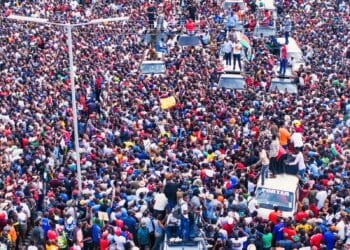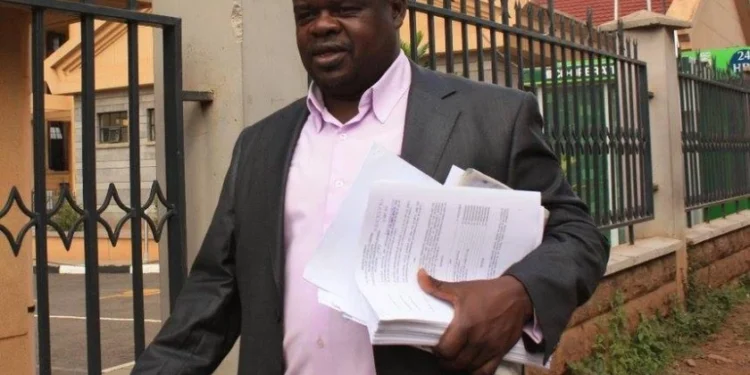Omtatah challenges Ruto’s eight bills on Raila’s death day in a scathing critique that’s reignited constitutional fires across Kenya’s divided political landscape, as the fiery activist-lawyer dissected President William Ruto’s assent to eight pieces of legislation on October 15 – the very hour opposition titan Raila Odinga drew his last breath in an Indian clinic.
Omtatah, the unyielding Busia native whose courtroom crusades have toppled everything from toll hikes to tax grabs, praised the reforms in tourism, land registration, wildlife conservation, and digital finance as “key steps forward”. Yet he drew a line in the sand against three measures, vowing judicial jabs to shield the republic from what he calls a slide into surveillance shadows and sovereignty slips.
The timing couldn’t be more poignant – or provocative. Odinga’s death plunged the nation into a haze of black armbands and unity pleas, with vigils from Kisumu’s lakeside to Nairobi’s streets still fresh in memory. Ruto’s pen, dipping into law on that fateful afternoon, birthed bills aimed at streamlining governance amid economic headwinds.
Omtatah’s statement, dropped via a measured Facebook post that ballooned to 200,000 views overnight, starts with measured applause: “I commend the Executive and Parliament for advancing key reforms.” But the pivot is a pure firebrand – a trio of takedowns that echo his lifelong war on overreach.
Topping the hit list: The Computer Misuse and Cybercrimes (Amendment) Act, 2025, which Omtatah slams for its “vague and overly broad provisions” that could muzzle free expression and choke access to info. “It risks turning Kenya into a surveillance state where online platforms can be shut down without due process,” he warned, his words a clarion for bloggers and tweeters who’ve felt the chill of the original 2018 law’s bite.
He’s already lawyered up for court, joining a chorus of digital rights defenders who see it as a gag on Gen Z’s protest pulse.
Next, the National Land Commission (Amendment) Act, 2025, gets Omtatah’s ire for slapping “unlawful timelines” on probing historical injustices – those thorny tales of colonial grabs and post-independence sleights that still scar Siaya’s soils and Kitui’s frontiers.
“Land justice cannot be rushed or constrained by arbitrary deadlines,” he asserted, a nod to the NLC’s Article 67 mandate that’s long been a battleground for the marginalised.
Capping the concerns: The Privatisation Act, 2025, which Omtatah brands a betrayal of Article 68 by greenlighting public land and assets’ handover sans Senate scrutiny. “Public land is a sacred trust; it cannot and must not be privatised,” he thundered, evoking ghosts of the 2010 Constitution’s devolution dreams now threatened by what critics call a fire sale to cronies.
Omtatah wrapped up with a principled plea: “My stand is principled, not political. I support all progressive laws… but I will firmly resist any legislation that undermines our Constitution.”
It’s a line that’s split reactions – UDA loyalists branding him a “perpetual naysayer”, while Azimio remnants and youth activists hail it as heroism.
As November’s chill bites, this challenge spotlights Kenya’s fragile fault lines: Reforms rushed in grief’s grip, or genuine governance gains? With court dates looming and 2027 whispers growing, Omtatah’s vow – “Let us remain united in defending the rule of law” – hangs like a gauntlet.

















